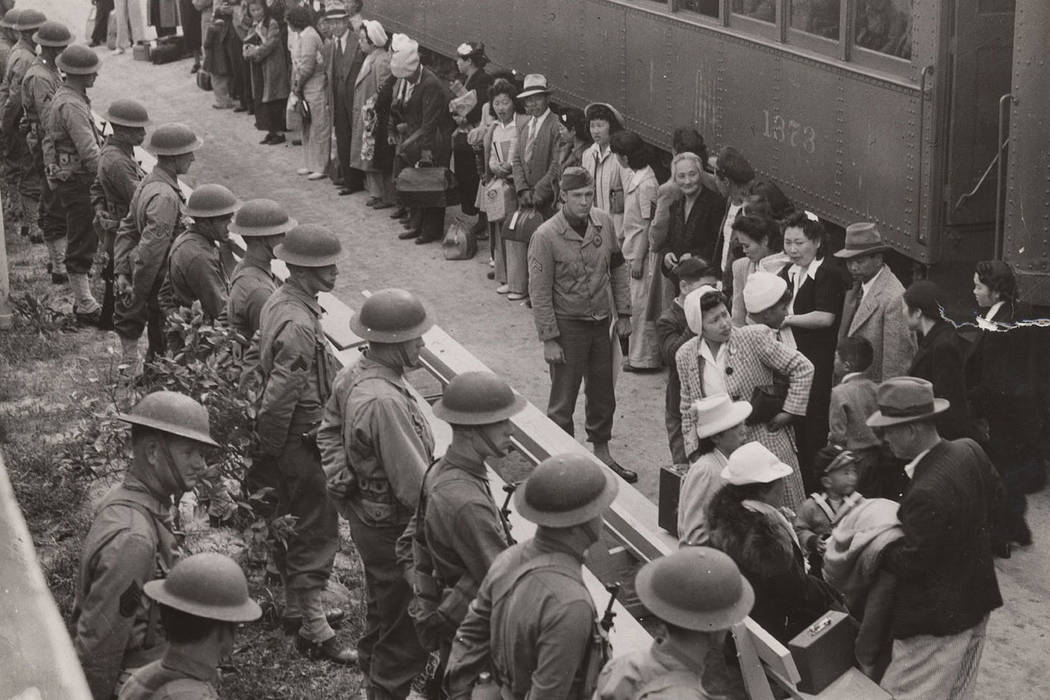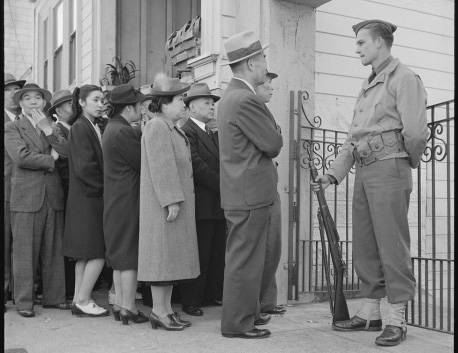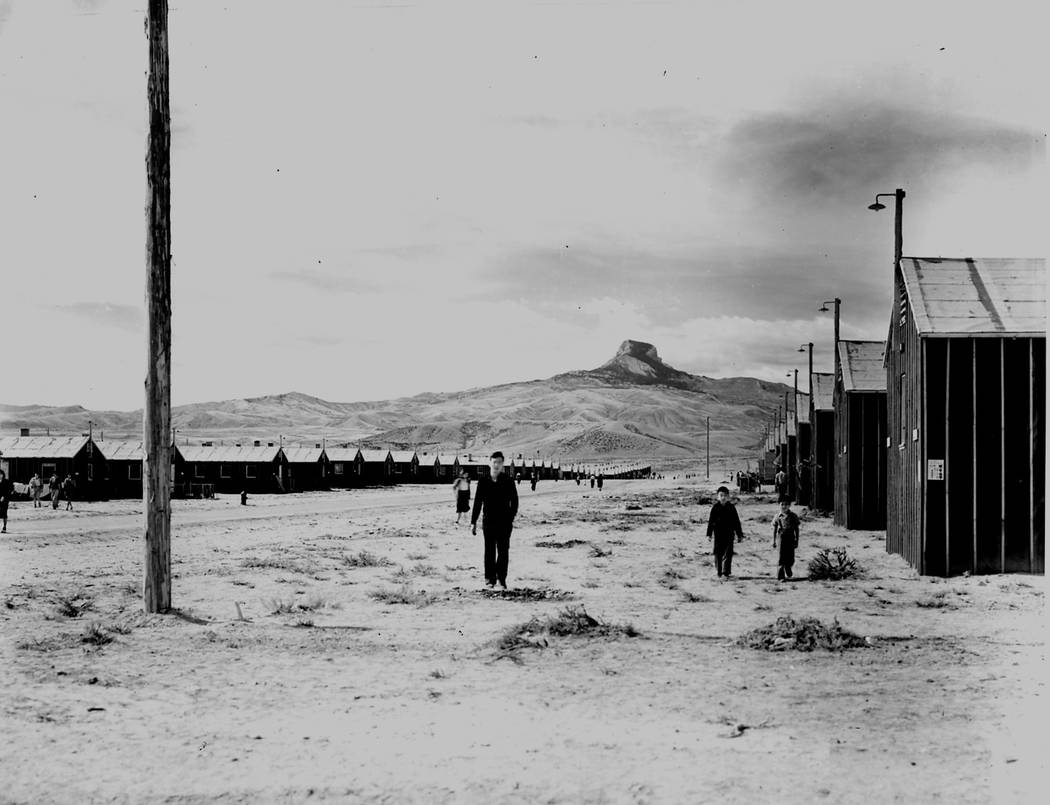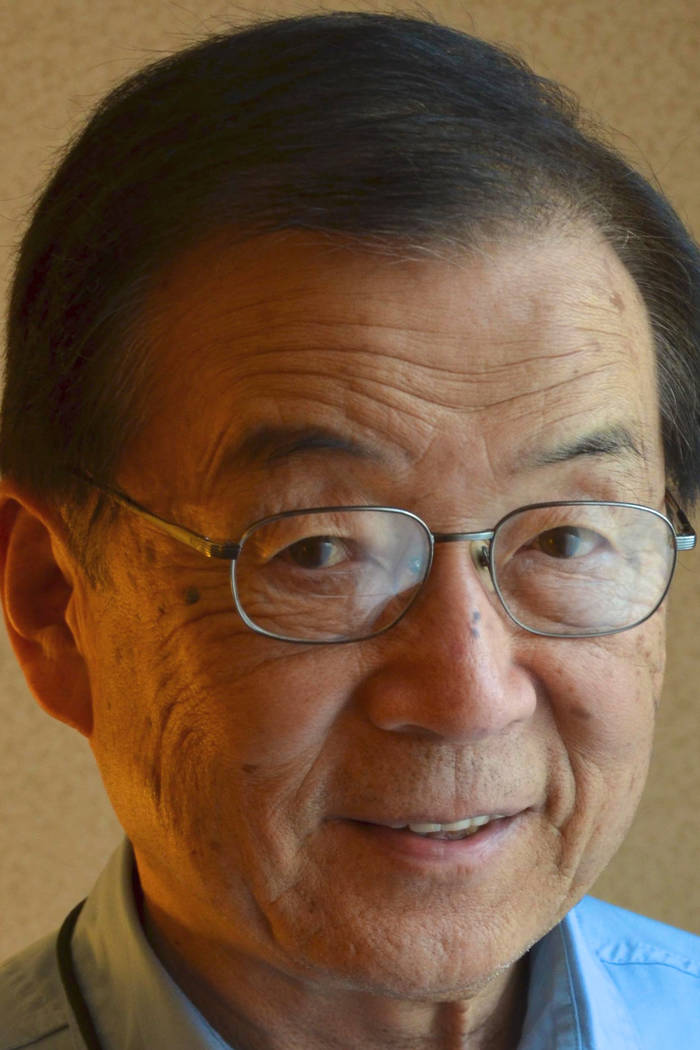Las Vegas crowd hears of horrors of World War II internment camps
Sam Mihara was 9 when his family was forced out of their home in San Francisco and bused to a remote location in Wyoming at the base of Heart Mountain — part of the roundup of people of Japanese descent following the attack on Pearl Harbor during World War II.
“The day of the move-out, there were armed guards everywhere,” Mihara said. “It was very traumatic, especially as a child. I’ll never forget seeing those soldiers with guns.”
Mihara, 86, has made it his life’s work to share the history of Japanese Americans torn from their homes and livelihoods. He has spoken nationwide, and he addressed a crowd of about 30 on May 14 at Sahara West Library.
“When I see elements of what happened to me in today’s world — when I hear the word registration, it rings a bell,” said Mihara, of Huntington Beach, California. “That’s what happened to us. We had to be registered, and then we were shipped off.”
Mihara’s was one of over 100,000 families shipped from their U.S. homes to internment camps, watched by heavily armed guards.
The exile came after Gen. John L. DeWitt, leader of the Army’s Western Defense Command, called for the removal of all people of Japanese descent living in the westernmost portion of the United States, Mihara said. President Franklin D. Roosevelt signed Executive Order 9066 into law on Feb. 19, 1942.
Mihara remembers seeing derogatory billboards and posters across San Francisco.
“It was very difficult,” Mihara said of the camp near Heart Mountain, just east of Yellowstone National Park. “We were right in the middle of a desolate country: sagebrush, rattlesnakes, scorpions, wild temperature extremes. We weren’t used to that. That wasn’t our climate, and that was a shock living under those conditions. My grandfather had colon cancer and I later found by looking at medical records that they were denying him food — and furthermore, they were giving him laxatives to keep his system clean. You don’t have to be a doctor to know that’s not how you treat someone with cancer.”
Mihara is keeping his family’s legacy alive. He’s on the board of directors for the Heart Mountain Wyoming Foundation and has been involved since its inception.
“We made sure to preserve the site as best possible so people can see and learn what happened,” Mihara said. “Not only are we rebuilding the camps and the barracks that were there, we built a new school — a learning center. That’s the most important function we do — to teach people about what happened. A lot of people don’t know. We invite people to come and see what’s really going on.”
Attendee Joshua Fisher, 25, of southwest Las Vegas said Mihara’s story is a reminder of the oppression many have faced as minorities in America.
“I think him sharing this is a real eye-opener,” Fisher said. “Like he said, most people don’t know this happened — or at least they don’t acknowledge it. It’s important for us to remember the past in order to understand what’s happening in our country now.”
Contact Mia Sims at msims@






















